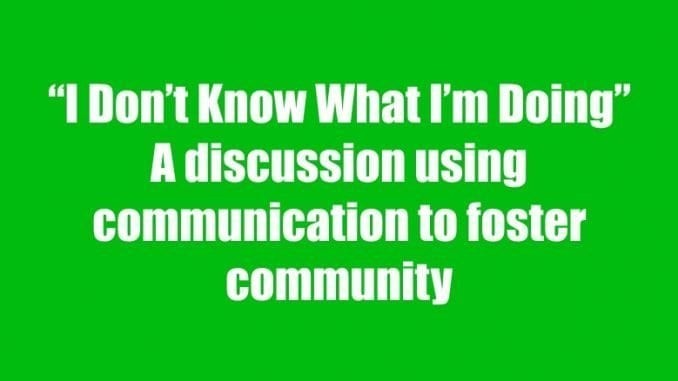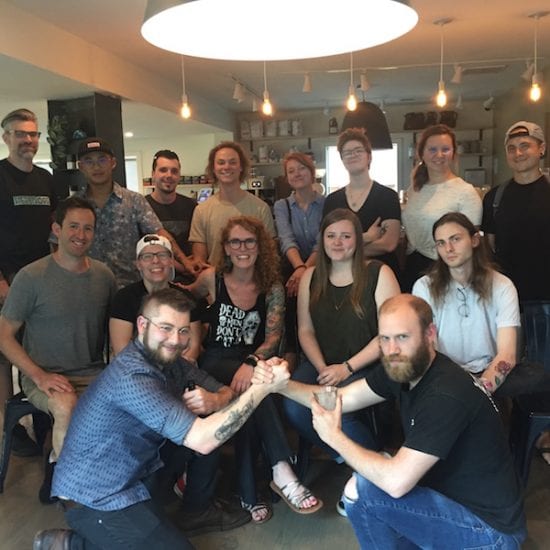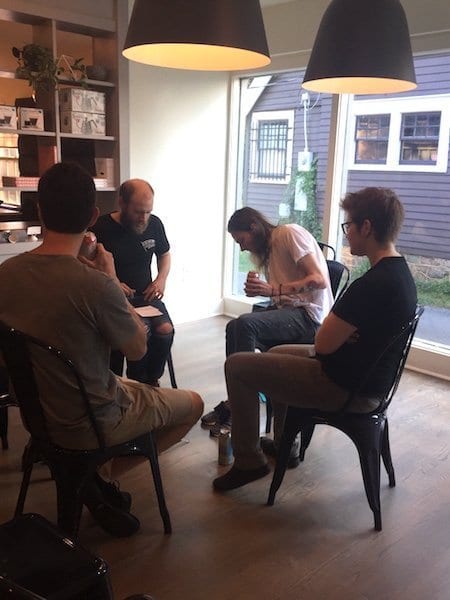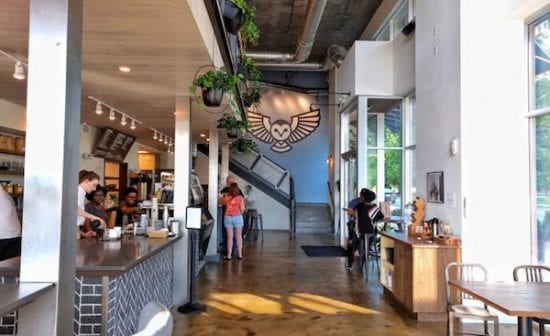
Coffee leaders in the Charlotte, N.C., area discuss important issues that they face and generate practical solutions.
BY KIARA TEASLEY
SPECIAL TO BARISTA MAGAZINE ONLINE

The term “community” may have different meanings to some, but for Dillon Williams, former director of coffee at Charlotte, N.C.’s Queen City Grounds, it means people coming together to brainstorm ideas and solutions instead of coping individually.
“That’s not what a community is about. That isn’t what the term community is,” Dillon said alongside Erica Warner, bar manager of Undercurrent Coffee, at “I Don’t Know What I’m Doing,” a discussion that the two hosted at Undercurrent on June 30. Other café leaders present included L Burleson of Not Just Coffee, Caleb White of Brakeman’s Coffee, and Anchor Coffee Co’s Greg Brady, who all led smaller groups before sharing their discussions with participants all together.
In these discussions, it was agreed that communication is an overall skill that can help build community and improve one-on-one interactions, a business’s own success in staff relations, and interactions with guests. Communication among coffee leaders in an area can also build a solid community among cafés and those who operate them.

A notable question asked during the event was, “How do you navigate a barista with fluctuating moods that affect the rest of the staff, and at times customers?”
The conclusion was to be firm in handling the employee’s potential disciplinary actions, but also to be understanding in terms of opening an honest line of communication. Understanding their perspective can help resolve some of the issue. Being open and honest also comes into play when setting up a “game plan”; let the barista know that there are three warnings before they will have to “part ways” if their behavior does not improve over time.
Another crucial scenario was how to deal with unhappy guests who may perceive an employee as giving poor customer service based off of the worker’s neutral demeanor. Paul Waggoner, owner of Queen City Grounds and Nightflyer Roastworks, suggested, “It may boil down to perception, and you cannot control a customer’s perception of you.”
A counter-remark suggested that it’s important to try one’s best not to get stressed at the workplace, since perception and how one is perceived is vital. L Burleson proposed asking during a staff meeting to question employees on what quality customer service means to them.
“What does your version of good customer service look like?” he asked. This, as a result, opens a line of communication to learn how each individual perceives the most crucial aspects of service.

Getting to know your staff as individuals also aids in understanding their personalities, both in and outside the work environment. Dillon finds that during the interview process he likes to get a personal feel of the potential hire by asking questions unrelated to work or coffee. L Burleson expanded on the idea and suggested for hiring managers to ask interviewees what they were interested in prior to becoming a barista. Following with what their best and worst working experiences were can give a “glimpse into how they could thrive,” which benefits both parties by finding the employees’ “sweet spots.”
Helping one another communicate on small- and large-scale issues can aid in creating a vibrant community instead. This, in turn, helps leaders better navigate and solve problematic scenarios that may be unique to the localized scene and the coffee industry as a whole.

ABOUT THE AUTHOR
Kiara Teasley is a native of Charlotte, N.C., and a barista at Queen City Grounds. Alongside learning more about and crafting specialty coffee, she has a high interest in classic literature and enjoys reading and writing essays with a nice cup of coffee in her downtime.

